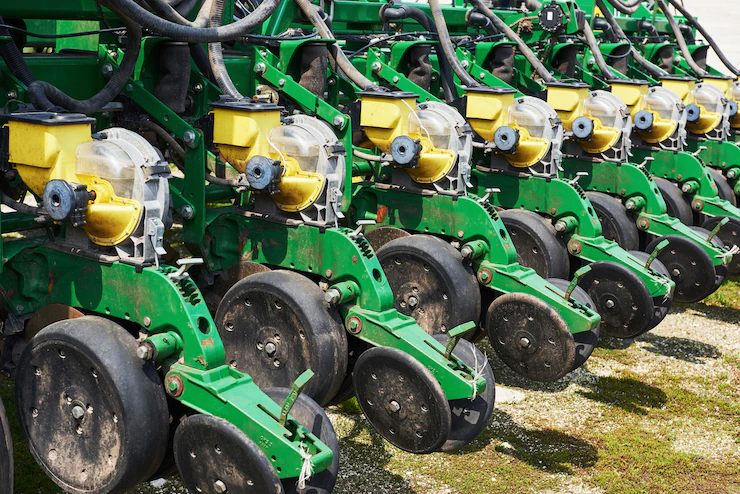Maintaining and repairing farm equipment efficiently is essential for ensuring the smooth operation of your farm and minimizing downtime. Here are some tips to help you with efficient farm equipment maintenance and repair:
- Follow manufacturer guidelines: Familiarize yourself with the manufacturer’s guidelines and recommendations for maintenance and repair. They provide valuable insights into specific maintenance schedules, lubrication points, and troubleshooting procedures.
- Create a maintenance schedule: Develop a comprehensive maintenance schedule for each piece of equipment. This should include regular tasks such as fluid checks, filter replacements, belt adjustments, and cleaning. Adhering to a schedule helps prevent breakdowns and allows you to plan maintenance during slower periods.
- Keep records: Maintain detailed records of all maintenance and repairs performed on each piece of equipment. This documentation will help you track the history of each machine, identify recurring issues, and schedule preventive maintenance effectively.
- Conduct regular inspections: Perform routine visual inspections of your equipment before and after use. Look for signs of wear, leaks, loose connections, and damaged components. Early detection of problems can prevent major breakdowns and costly repairs.
- Lubrication and fluid checks: Regularly inspect and lubricate all moving parts as per the manufacturer’s recommendations. Check fluid levels, including engine oil, hydraulic fluid, coolant, and fuel. Replace fluids and filters at recommended intervals to maintain optimal performance.
- Keep it clean: Clean your equipment regularly, especially after use in dusty or muddy conditions. Remove dirt, debris, and crop residues from the machinery, as they can cause damage and corrosion. Clean air filters, radiator fins, and cooling fans to ensure proper airflow.
- Train your operators: Ensure that your equipment operators are trained in proper operation and maintenance practices. Educate them on the importance of regular inspections, timely reporting of issues, and safe usage. Well-trained operators can help prevent unnecessary wear and tear.
- Address issues promptly: If a problem arises, address it promptly rather than delaying repairs. Ignoring minor issues can lead to more significant damage and costly repairs down the line. Encourage your team to report problems immediately so that they can be addressed promptly.
- Stock essential spare parts: Keep an inventory of critical spare parts and consumables specific to your equipment. This includes filters, belts, hoses, lubricants, and commonly replaced components. Having these items readily available can help minimize downtime.
- Consider preventive maintenance agreements: For complex or specialized equipment, consider entering into preventive maintenance agreements with authorized dealers or service providers. These agreements can help ensure regular inspections and maintenance by professionals who are familiar with the equipment.
Remember, safety should always be a priority during maintenance and repair tasks. If you’re unsure about any aspect of equipment maintenance, consult the manufacturer’s guidelines or seek assistance from a qualified technician or service provider.
Join 'Farmers Mag' WhatsApp Channel
Get the latest Farming news and tips delivered straight to your WhatsApp
CLICK HERE TO JOIN






